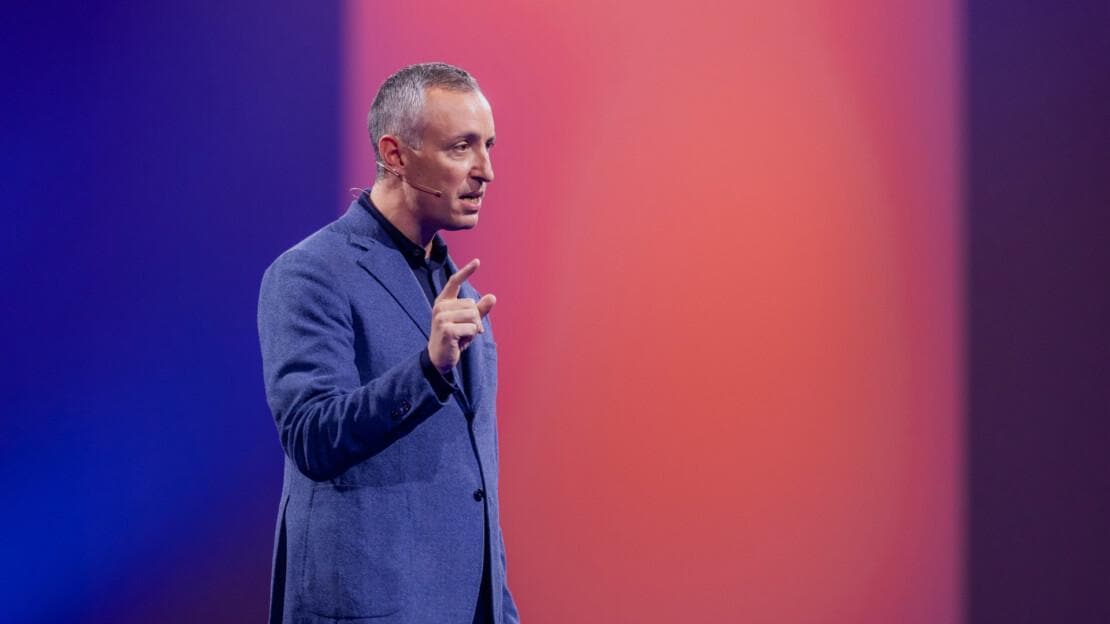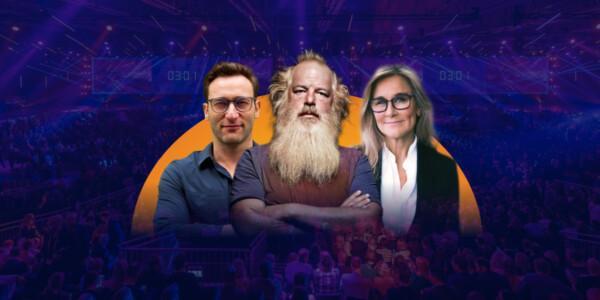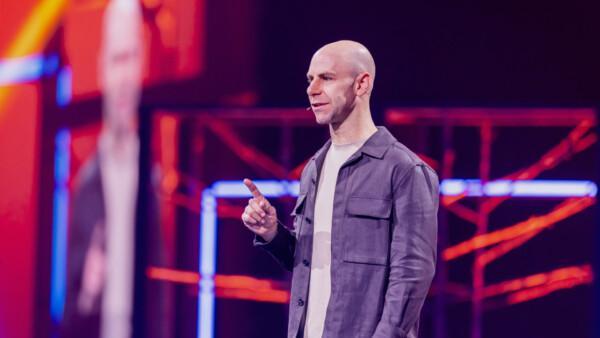30Sep2024
Will Guidara, the former co-owner of the internationally acclaimed restaurant Eleven Madison Park, gave an inspiring keynote on how he elevated the restaurant to global excellence—not only through outstanding food and service, but by adopting a bold approach he refers to as “unreasonable hospitality.” His journey offers valuable insights for any leader or business looking to build stronger relationships with customers by going beyond expectations.
A Journey to Excellence
Will arrived at Eleven Madison Park in 2006 as part of the team tasked with elevating the customer experience to match the elegance of the venue. “I worked there, bought the restaurant, and then sold my restaurant company about three months before Covid hit.” His first impressions were that it was a “middling brasserie” in New York City. “The food was good but it wasn’t great. The service was friendly, but it wasn’t precise.” The dining room, however, was one of the most beautiful in the world. Over time, he and his team improved the food and the service, eventually achieving prestigious milestones like three Michelin stars and a perfect score from the New York Times.
Having reached the pinnacle in New York, Will was thrilled when Eleven Madison Park made its debut on the World’s 50 Best Restaurants list. He flew to London to accept the award, only to discover they ranked last. Despite achieving excellence in every technical aspect, Will realized that something was still missing. While they had mastered the tangible aspects of fine dining, they hadn’t yet made a lasting emotional impact on their guests. This led him to explore the emotional side of hospitality, which he believes is key to creating truly unforgettable experiences.
The Concept of Unreasonable Hospitality
After reflecting on how to make a greater impact, Will coined the term “unreasonable hospitality.” For him, this philosophy meant going beyond the expected and finding creative ways to make guests feel seen, valued, and cared for. He realized that the smallest details—ones most restaurants overlook—could have the biggest emotional impact on guests. He introduced “Dreamweavers” into his team, individuals dedicated solely to finding unique, thoughtful ways to delight guests in unexpected moments. This position was responsible for creating memorable experiences, like surprising guests with their favorite items or turning small details into lifelong memories.
Examples of Unreasonable Hospitality
Throughout his speech, Will shared several anecdotes that exemplified his concept of unreasonable hospitality:
- The Hot Dog Gesture: Upon overhearing a guest in a party of four mention that they had never tried a New York hot dog, Will went outside, bought one from a street vendor, asked his Swiss chef to add a distinctive touch and had it served to the guests on fine china. This unexpected moment created joy that no extravagant dish could have matched.
- The Sledding Adventure: When a family from Spain saw snow for the first time through the window during their meal, Will’s team arranged for a SUV van with sleds and hot chocolate to be waiting for them at the door and then drove them to Central Park, turning a simple meal into a magical experience.
- Tiffany Champagne Flutes: For couples getting engaged at the restaurant, Will partnered with Tiffany & Co. to gift the champagne flutes they toasted with, creating an unforgettable keepsake tied to their special moment.
These stories illustrated Will’s core message: true hospitality is not just about providing excellent food and service, but about creating lasting memories by treating every guest as a unique individual. The most memorable gestures are often the simplest, yet the most personal.
Building a Culture of Hospitality
Will emphasized that fostering a culture of hospitality requires consistent leadership and communication. He used pre-shift meetings not only to discuss operational details but to inspire and engage his staff with stories and ideas that made them better both professionally and personally.
“If you want to create a culture of hospitality, your business’s experience needs to feel like you’re inviting someone over to your home for dinner,” he said.
He also explained that hospitality is as much about empowering the team as it is about serving the guest. By giving his team ownership of the guest experience, Will saw a remarkable transformation in morale and engagement. The team began to see themselves as creators of joy, and their passion for serving others became infectious.
The Competitive Advantage of Hospitality
Will concluded by highlighting the long-term value of hospitality as a competitive advantage. While products, brands, and technology can always be surpassed, building strong relationships through thoughtful, generous gestures creates loyalty that’s difficult to erode. He urged leaders to embrace hospitality as a core business strategy:
“The only competitive advantage that exists over the long term comes through hospitality—through creatively, generously, and consistently investing in relationships.”
Key Points
- Excellence is just the starting point: Will’s restaurant succeeded because they mastered the basics of food and service, but it became truly memorable when they focused on how they made guests feel.
- Small gestures make big impacts: It’s often the smallest, most personal touches that create the strongest memories for customers.
- Empower your team: By giving staff the freedom to create joyful experiences for guests, you foster a culture of hospitality that benefits both the customer and the team.
- Hospitality is a competitive advantage: In an age where products and brands are easily replicated, building strong, emotional relationships with customers is a sustainable advantage.
- Scale thoughtfulness, not processes: Even in an unscalable industry like fine dining, you can find recurring opportunities to delight guests in small but meaningful ways.
Questions for Reflection
- How can you apply the principles of unreasonable hospitality to your own business or leadership style?
- What small, unexpected gestures could you incorporate into your customer experience to create lasting memories?
- How can you better empower your team to take ownership of the customer experience and bring creativity to their work?
- In what ways can hospitality become a competitive advantage in your industry?
- How can you ensure that excellence in your business is not just about the product but about how customers feel after every interaction?



